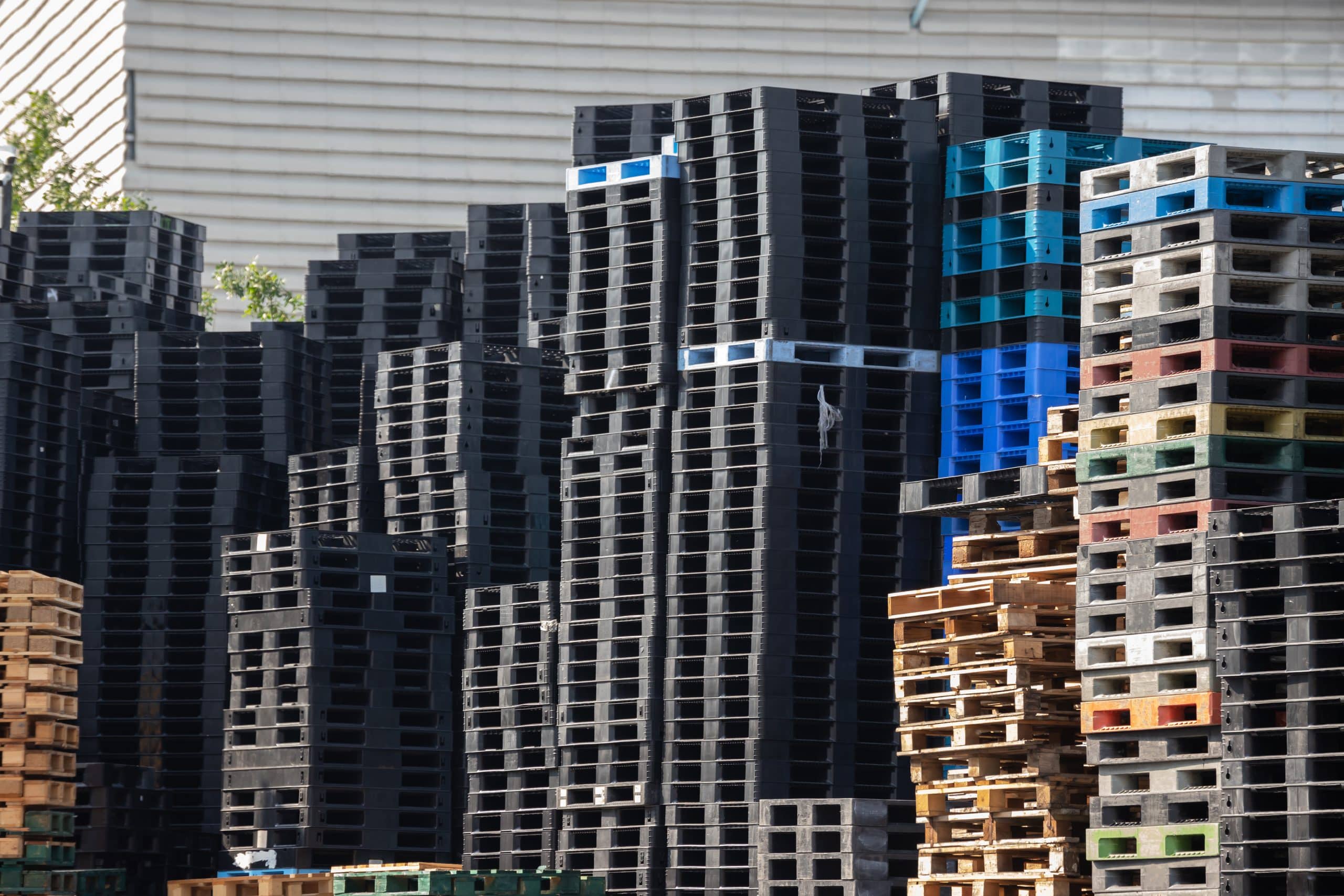Since the onset of the pandemic, supply chains have been plagued with material, fuel, and labor shortages – it is no surprise they are experiencing an acute wood pallet shortage as well. Foodarticle.com attributes the shortage to increased inventory retention in stores (hoping to ward off the previous pandemic-related impacts), inability to repair damaged pallets and build new ones (increased lumber prices and lack of lumber supply), as well as a decrease in truck availability to pick up used pallets.
There was hope the pallet shortage would be a short-lived pain point for supply chains, ending in 2021, but 2022 has seen little improvement. The continued demand partnered with material and labor issues limits the output of the manufacturer – causing the price of wood pallets to continue to rise. As an economic recession threatens and inflation creeps in, the anticipation is the shortage will remain for the unforeseeable future.
Plastic vs. BLOCKPal Composite Pallet Alternatives
Wood pallets have been a go-to for supply chains for decades, but the question now begs what is the best non-wood pallet alternative – and were wood pallets ever the best choice? A 2020 article titled “Are Wood Pallets a Food and Drug Safety Risk” discusses regulations that require supply chains to remove unsanitary or poorly maintained wood pallets from their inventory and seek alternatives, as the Food and Drug Administration determined there may be significant risks with wood pallet safety.

The increase in safety concerns as well as the ongoing wood pallet shortage is leaving supply chains and warehouses scrambling to find a substitute. Plastic and fiberglass composite pallets (like RM2’s BLOCKPal) are increasingly becoming that go-to replacement. Let’s look at how these two options stack up on critical issues of environmental impact, durability, and safety.
Plastic Pallets
An oil-based product, the production of plastic pallets has a significant environmental impact. These pallets do have a longer shelf life than wood at 50 uses but lack the strength and durability to sustain heavy weight or tough cold chain environments, often becoming brittle or cracking in extreme temperatures. Due to the flammability of plastic, the pallets are treated with toxic chemical flame retardants to meet fire safety regulations, creating a limitation for some uses. Plastic does offer a lighter weight than wood – helping to keep fuel costs down. However, the lack of repairability leaves the plastic pallets to be ground up and recycled at the end of their useful life.
As supply chain managers make the shift to a wood alternative, they are also looking for increased visibility into their supply chain logistics – seeking out pallet options that offer traceability. Due to economic viability, plastic pallets remain limited to geo-tracking devices that are restricted in their data-sharing capabilities.
BLOCKPal™ Pallets
Made from composite fiberglass, BLOCKPal pallets are engineered for optimal performance. They are lower in weight and height than the average wood or plastic pallet. BLOCKPal pallets are stronger than steel, pound for pound, creating a tough, durable, and reusable pallet that boasts a life span of 100 uses or 10+ years and a rack capacity of 6,500 lbs. – twice that of a standard plastic pallet. Should a component become damaged, these pallets are easily repairable.

Composite fiberglass is a naturally fire- and bacteria-resistant material – eliminating the need for added harmful contaminants – making them a more suitable and hygienic option for the most demanding supply chains, including the cold chain. A significant feature of the BLOCKPal pallet is its traceability. The high structural integrity of the composite pallet enables the capacity for superior tracking with IoT technology, allowing supply chains access to accurate real-time tracking – 24/7.
BLOCKPal – The Better Pallet Alternative
BLOCKPal pallets offer structural integrity and longevity – which means a longer useful life cycle, and the steel-like strength needed for today’s supply chain. Naturally resistant to bacteria and fire, the pallets will never require the addition of harsh carcinogenic chemicals to make them fire-safe. And with their smaller square footage – you can fit more pallets into every load. All this and superior tracking technology give managers the data and insights they need to manage even the most complex supply chains.
To learn more about RM2’s BLOCKPal reusable pallets with IoT trackable technology, contact us.
